- News
- Reviews
- Bikes
- Accessories
- Accessories - misc
- Computer mounts
- Bags
- Bar ends
- Bike bags & cases
- Bottle cages
- Bottles
- Cameras
- Car racks
- Child seats
- Computers
- Glasses
- GPS units
- Helmets
- Lights - front
- Lights - rear
- Lights - sets
- Locks
- Mirrors
- Mudguards
- Racks
- Pumps & CO2 inflators
- Puncture kits
- Reflectives
- Smart watches
- Stands and racks
- Trailers
- Clothing
- Components
- Bar tape & grips
- Bottom brackets
- Brake & gear cables
- Brake & STI levers
- Brake pads & spares
- Brakes
- Cassettes & freewheels
- Chains
- Chainsets & chainrings
- Derailleurs - front
- Derailleurs - rear
- Forks
- Gear levers & shifters
- Groupsets
- Handlebars & extensions
- Headsets
- Hubs
- Inner tubes
- Pedals
- Quick releases & skewers
- Saddles
- Seatposts
- Stems
- Wheels
- Tyres
- Health, fitness and nutrition
- Tools and workshop
- Miscellaneous
- Cross country mountain bikes
- Tubeless valves
- Buyers Guides
- Features
- Forum
- Recommends
- Podcast
review
£4,599.00
VERDICT:
An exceptional piece of design and engineering that justifies its pro level price tag
Weight:
6,600g
Contact:
www.lapierre-bikes.co.uk
At road.cc every product is thoroughly tested for as long as it takes to get a proper insight into how well it works. Our reviewers are experienced cyclists that we trust to be objective. While we strive to ensure that opinions expressed are backed up by facts, reviews are by their nature an informed opinion, not a definitive verdict. We don't intentionally try to break anything (except locks) but we do try to look for weak points in any design. The overall score is not just an average of the other scores: it reflects both a product's function and value – with value determined by how a product compares with items of similar spec, quality, and price.
What the road.cc scores meanGood scores are more common than bad, because fortunately good products are more common than bad.
- Exceptional
- Excellent
- Very Good
- Good
- Quite good
- Average
- Not so good
- Poor
- Bad
- Appalling
I picked the Lapierre up from roadcc the day after my daughter's first birthday. There we were in the sitting room, her with her new toys, me with mine. I’m not sure who was the most excited. After each tweak of the saddle height or bars, lift the bike again – nope, nothing’s changed, still unfeasibly light – 6.6kg without pedals !!!
I almost didn’t want to take it for its first test ride, as people say, a bit like meeting one of your idols and finding it all a bit disappointing. I needn’t have worried. I settled on a quick 10 mile blast to make sure everything was tight and set up correctly before I rode it to work the next day. The first 2 miles or so warming up everything settles into place.

Yeah it's light, you can definitely feel that, no twitchy handling surprises or anything, nothing out of the ordinary to be honest. Then coming into a roundabout an artic is right on my back wheel, as we leave the roundabout he accelerates to overtake (not the most ideal of places to pass!) so I decide to have a bit of fun. I get out of the saddle and accelerate hard, I can hardly change gear quick enough as the bike takes off, within seconds I’m doing 35mph on the flat. The wagon doesn’t stand a chance. I see him again in half a mile as I ease into a lay-by to let him past as he catches me up. I now know what the Xelius 900 is all about – SPEED!!!
The Xelius 900 is the top of Lapierre’s road range. At the heart of the bike is the X-Lite II monocoque UD HM carbon frame, its tubes changing size and shape from start to finish enabling comfort in some planes with stiffness in others. At only 840g (medium) for the naked frame it truly is a remarkable piece of engineering. The uni-directional laying of the fibres is certainly noticeable in the ride, at club run pace the Lapierre is extremely comfortable without feeling soft but when you need to put the power down there is not a hint of flex anywhere, admittedly helped by a set of stiff wheels and components.
At first sight the frame design is reasonably reserved compared to a lot of bikes at this price, also with the quiet paint job you would probably walk straight past it in your local bike shop in amongst the bling Cervelos, Times and Looks. When you actually look at the frame though you can see it’s a very organic elegant piece of design while every tube profile is engineered for a purpose from the 1 1/8” – 1 ½” tapered headtube to the overbuilt bottom bracket area.

The best bits for me though are the chainstays, they narrow as they leave the BB to allow for the tyre and wheel and then swoop back in creating a lovely profile. Manufactured in Taiwan to Lapierre’s design and then assembled in their Dijon factory, each frame is built into a complete bike by one person from start to finish where they then sign their name to it so there should be no quality control issues. The only niggle I had with the frame was the internally routed rear brake cable that would buzz irritatingly against the inside of the top tube on rough road surfaces.
Ritchey supplies the all carbon fork, which sells for around £300 as an aftermarket item, it's a top performer which ties in perfectly with the Lapierre's frame. Its monocoque design including dropouts (with an alloy surface added to protect the clamping area) tips the scales at 300g. There is no lateral flex even at high cornering speeds but with just enough fore and aft to take the road buzz out before it makes its way to the handlebars.
The steam and seat post are also from the Ritchey's WCS range, but both in aluminium rather than carbon. While it seems odd to see an aluminium seatpost on a bike these days Lapierre wanted the stem and post to match, considering the alloy WCS stem is slightly stiffer than the carbon version that’s the direction that was taken. The alloy post doesn’t detract from the ride at all and with the frame set up to take the sting out of the road vibrations anyway there is no loss of comfort, even at Ø31.6mm.
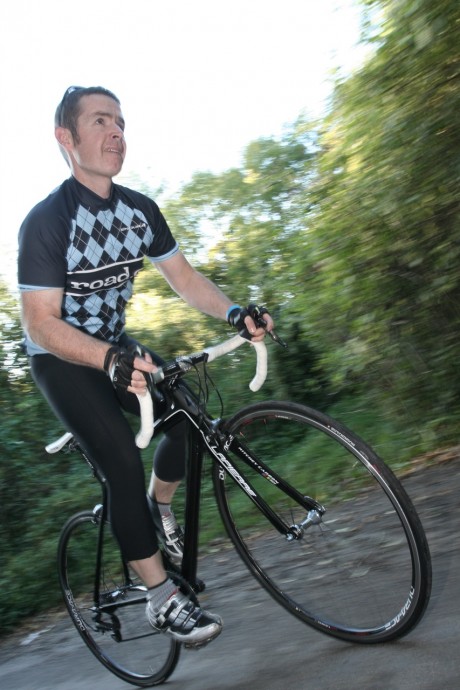
Handlebars are, you guessed it, by Ritchey too but this time they are from the Carbon SuperLogic range. These, like the frame and fork, are also of monocoque construction using uni-directional laying up of the fibres. Tipping the scales at just under 200g there is very little flex even with my 80kg yanking them from side to side. With an rrp close to £300 (I have found them for half this on the internet) you certainly aren’t going to want to crash but they do give such a sublime ride and excellent feedback they are a worthy extravagance.
Selle San Marco provide the saddle, the Ponza. After a hundred or so miles to break it in it becomes a very comfortable perch even on a day when I put in nearly 7 hours on it. It reminded me very much of my all time favourite in terms of light and comfort, the SLR. Finished in white with a black stripe it complements the white bar tape to bring a touch of bling to the Xelius, especially as white seems to be the new black for 2010.
As you'd expect the groupset is out of the top drawer too, Shimano Dura Ace 7900 components throughout. The shifting was precise right from the start and never went out of line in the 700 miles of testing. The mix of matt finish with machined areas looks smart and brings Dura Ace bang up to date in line with the looks of Campag and SRAM’s top end groupsets. Both shifters provide a very light action, even changing gear under load and the hoods give a very comfortable perch for your hands.
Now that Shimano routes the cables along the bars a la Campag the aesthetics at the front of the bike are greatly improved. The chain, cassette and rear mech all worked smoothly and quietly with a bit of creaking coming from the crank after 500 miles but this would be sorted by your LBS at your 6 week service. Braking wise the callipers served up excellent modulation and great stopping power in the dry. Wet weather braking wasn’t very good but I’d expect that to change as the rims bedded in as the mileage increases.
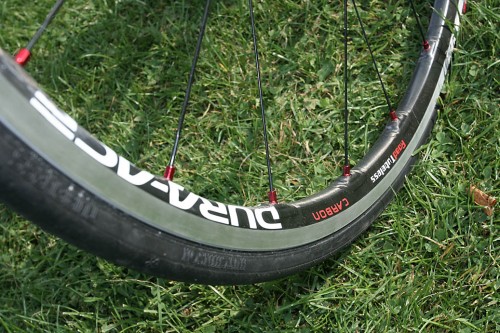
Dura Ace takes care of the wheels too, the 7850 carbon laminate model. The rims are aluminium but only 0.5mm thick, (apart from the braking surface) carbon fibre is added around the spoke holes for strength and then a carbon layer is added to increase rigidity over the entire wheel. Bladed straight pull stainless steel spokes, 16 front, 20 rear keep everything true. The nipples have been moved back to the rim as opposed to the hub as on earlier models and this makes truing much easier.
The aluminium hubs ran silky smooth with no friction felt at all even straight out of the box. I had a slight issue with trueness in the rear wheel as it lost tension in a couple of spokes on the second ride. I managed to tweak things but a few days later the wheel went a good 15mm out of true and had to be trued by a bike shop to enable me to get home. Once that had been done though there were no more problems, again one of those things that would be sorted out under warranty so no major cause for concern. These rims are also designed to run with tubeless tyres, Hutchinson Atom in this case, which handled very well. They felt just like tubs to ride as there was hardly any rolling resistance whatsoever. Grip was second to none wet or dry and they seemed to offer good resistance to cuts as there was not a mark on them when I gave the bike back.
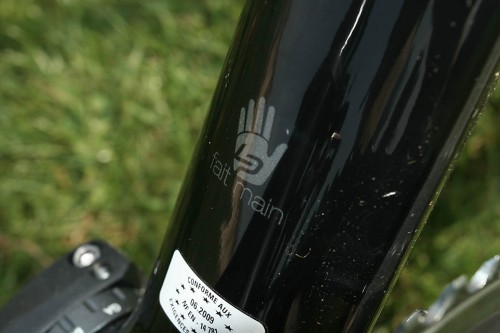
All this adds up to a great package. The handling is precise no matter what speed you are doing, I touched 52mph on one descent and not once did the Xelius feel out of control. Everything from the tyres through to the handlebars gives so much feedback that you always know exactly what the bike is up to. In traffic the steering is super quick which easily gets you out of trouble just being able to flick around obstacles in your way. The whole bike is perfectly balanced as well, I’ve never been able to track stand as easily or for as long as I could on the Lapierre.
Verdict
£4600 is a huge amount to spend on a bike but if you bought the Lapierre you wouldn't be disappointed. You'll never get bored of the acceleration and its a joy to climb on, its also both stiff and comfortable which is no mean feat. All in it's an exceptional piece of design and engineering and does justify its pro level price tag.
road.cc test report
Make and model: Lapierre Xelius 900
Size tested: 52cm
About the bike
State the frame and fork material and method of construction. List the components used to build up the bike.
Frame and fork are both monocoque construction using uni directional carbon fibre layers.
Full mechanical Dura Ace
Dura Ace Carbon Laminate Tubeless Wheels
Ritchey components, including carbon superlogic bars
Tell us what the bike is for, and who it's aimed at. What do the manufacturers say about it? How does that compare to your own feelings about the bike?
This a pro level race bike and it is designed to be ridden fast but yet its also comfortable enough to ride day after day.
Lapierre says:
Last year, our new X-Lite II monocoque carbon frame rapidly found its place in the pro and amateur pelotons.
Reborn as the Xelius in 2010, the little bomb from Lapierre has totally new cosmetics but keeps the same high standards of stiffness, lightweight, precise handling and design. A bike that was made to go fast, that will answer back to every pedal stroke and allow you to reach your full potential.
I think they've hit the nail on the head!!
Frame and fork
Overall rating for frame and fork
10/10
Tell us about the build quality and finish of the frame and fork?
The frame is finished to a great standard and the paint is blemish free.
The Ritchey forks are also finished to a high standard and match the frame perfectly.
Tell us about the materials used in the frame and fork?
Monocoque construction on both. Fibres are layed up in different directions around the frame to build in comfort or stiffness.
Tell us about the geometry of the frame and fork?
Size tested 52cm (centre of BB to top of seat tube)
top tube - 550mm
head tube angle - 73 deg
seat tube angle - 73 deg
chainstay length - 408mm
head tube length - 150mm
fork rake - 45mm
How was the bike in terms of height and reach? How did it compare to other bikes of the same stated size?
its a very low racy position but is pretty standard. The test bike was called a 52cm but is in reality a 55cm. Sizes (t-t length) 520mm,535mm,550mm,570mm & 590mm.
Riding the bike
Was the bike comfortable to ride? Tell us how you felt about the ride quality.
The ride is a great compromise between stiffness and comfort. The tyres, bars, saddle and everything worked together to make it a joy to ride.
Did the bike feel stiff in the right places? Did any part of the bike feel too stiff or too flexible?
the uni-directional carbon does its job here, everything spot on
How did the bike transfer power? Did it feel efficient?
Its greatest strength, not an ounce of power wasted whether its climbing or sprinting
Was there any toe-clip overlap with the front wheel? If so, was it a problem?
marginal but never caused a problem
How would you describe the steering? Was it lively, neutral or unresponsive? spot on no matter what you asked the bike to do
Tell us some more about the handling. How did the bike feel overall? Did it do particular things well or badly?
For a light bike it descended very well feeling planted and never skittish. once the tyrees had scrubbed in I had 100% confidence that the Xelius was going to do what I asked it.
Which components had the most effect (good or bad) on the bike's comfort? would you recommend any changes?
The Selle Italia saddle was good, supportive but comfortable. The Superlogic bars also had just enough flex to take the road buzz out.
Which components had the most effect (good or bad) on the bike's stiffness? would you recommend any changes?
The Ritchey WCS 4Axis stem is super stiff which gave very precise steering. The Dura Ace chainset is known to be one of the stiffest on the market and that shows up under heavy loads.
Which components had the most effect (good or bad) on the bike's efficiency? would you recommend any changes?
To be fair everything works together being light and stiff its always going to be hugely efficient.
Rate the bike for efficiency of power transfer:
10/10
no power lost anywhere
Rate the bike for acceleration:
10/10
Rate the bike for sprinting:
10/10
Rate the bike for high speed stability:
10/10
Rate the bike for cruising speed stability:
10/10
Rate the bike for low speed stability:
10/10
Rate the bike for flat cornering:
10/10
Rate the bike for cornering on descents:
10/10
best descending bike I've ever ridden
Rate the bike for climbing:
10/10
6.6kg - need i say more
The drivetrain
Rate the drivetrain for performance:
9/10
Rate the drivetrain for durability:
9/10
Rate the drivetrain for weight:
9/10
Rate the drivetrain for value:
8/10
not a huge difference to Ultegra considering the price difference
Tell us some more about the drivetrain. Anything you particularly did or didn't like? Any components which didn't work well together?
The new shifters are great. The reworked action feels much more positive and you can also change more than one gear at a time moving up the cassette like Campag. The finish on all the components looks classy as well.
Wheels and tyres
Rate the wheels and tyres for performance:
9/10
Rate the wheels and tyres for durability:
9/10
Rate the wheels and tyres for weight:
10/10
The rims are super light minimizing the revolving weight which is a big help when climbing
Rate the wheels and tyres for comfort:
9/10
perfect feedback through the Hutchinson tyres
Rate the wheels and tyres for value:
9/10
good light set of hoops for the money
Tell us some more about the wheels and tyres.Did they work well in the conditions you encountered? Would you change the wheels or tyres? If so, what for?
The tyres are a joy to ride with hardly any noticable rolling resistance. also offer excellent grip wet or dry.
The Dura Ace wheels are exceptionally stiff considering how light they are and the hubs are the smoothest I've ever felt.
Controls
Rate the controls for performance:
10/10
well thought out, it would seem the Lapierre has been specced by a rider rather than an accountant
Rate the controls for durability:
10/10
Ritchey components are excellent quality
Rate the controls for weight:
9/10
Rate the controls for comfort:
10/10
Rate the controls for value:
9/10
The bars are mega bucks, if i was bunch racing I'd swap them for alloy WCS to match the post & stem
Tell us some more about the controls. Any particularly good or bad components? How would the controls work for larger or smaller riders?
The components work together well with the frame and would work well throughout the size range. The carbon bars might start to flex a bit with anyone above the 85kg mark though
Your summary
Did you enjoy riding the bike? yes
Would you consider buying the bike? yes
Would you recommend the bike to a friend? yes
About the tester
Age: 31 Height: 180cm Weight: 80kg
I usually ride: Schwinn Fastback Pro My best bike is: Dolan Chrono TT Custom
I've been riding for: 5-10 years I ride: Every day I would class myself as: Expert
I regularly do the following types of riding: time trialling, commuting, club rides, sportives, fixed/singlespeed,
Since writing his first bike review for road.cc back in early 2009 senior product reviewer Stu has tested more than a thousand pieces of kit, and hundreds of bikes.
With an HND in mechanical engineering and previous roles as a CNC programmer/machinist, draughtsman and development engineer (working in new product design) Stu understands what it takes to bring a product to market. A mix of that knowledge combined with his love of road and gravel cycling puts him in the ideal position to put the latest kit through its paces.
He first made the switch to road cycling in 1999, primarily for fitness, but it didn’t take long for his competitive side to take over which led to around ten years as a time triallist and some pretty decent results. These days though riding is more about escapism, keeping the weight off and just enjoying the fact that he gets to ride the latest technology as part of his day job.



























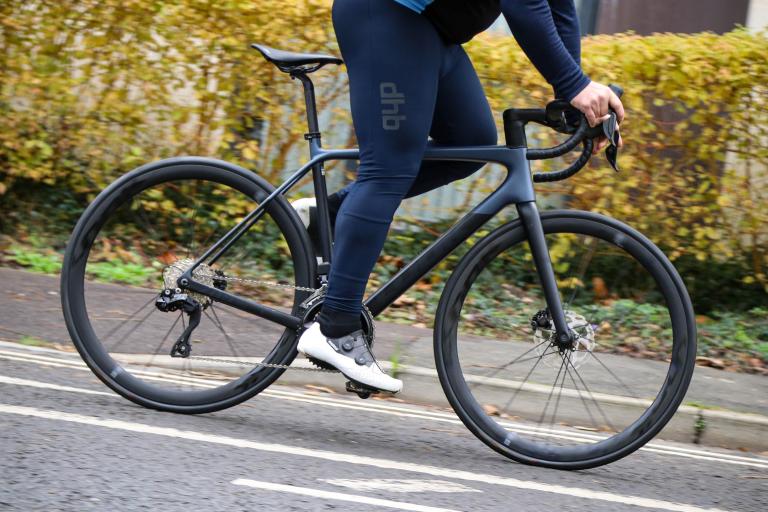
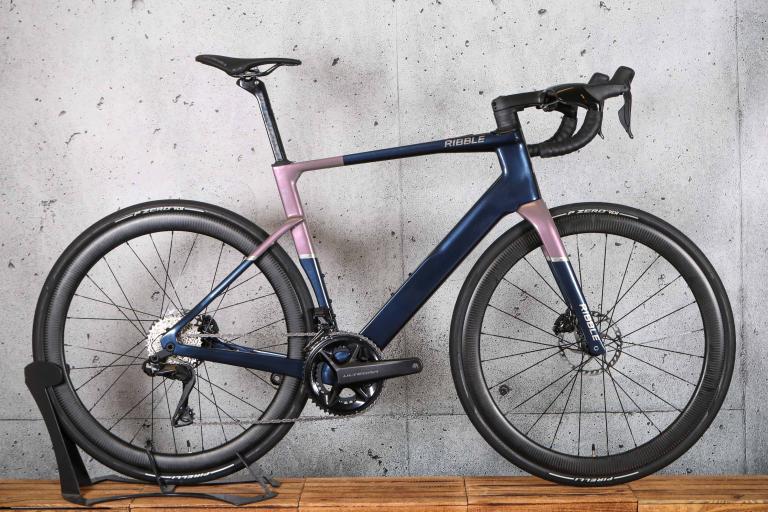
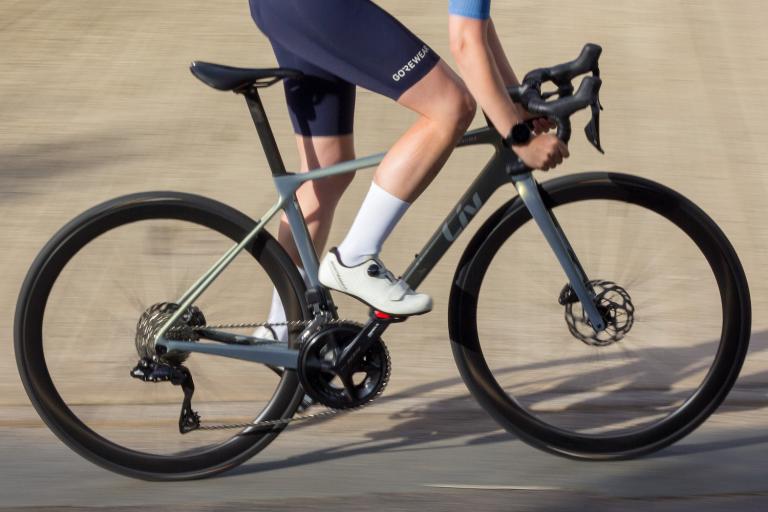
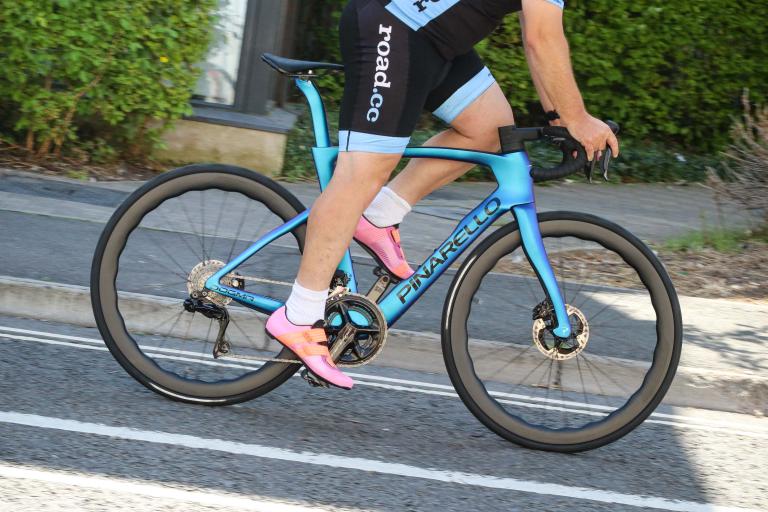
"Ah well, it was just an accident" seems to have become one of the most important ideas in the active travel campaigner's world. I guess the ...
Depends where you are but last year a DPD driver I reported was NIP'd by the Met after I submitted a video of him parking on the zigzags of a zebra...
Thanks, I'll give it a listen.
Not really Blaupunkt though, sadly: the company was liquidated in 2016 following bankruptcy. It's just a trademark now that's licensed to various...
He won't be "jailed" for life as it will not be a "whole life" sentence. He's 22 now, so may be out as early as when he is 37 as the minimum "jail"...
I am absolutely certain that it's not fair for trans-identifying males who went through male puberty to compete in female sports... and that should...
White shoes:...
Nothing to do with cycling, and currently unclear as to what exactly happened. But a child is dead, a tram line isn't running services and ...
Sidelining the point here a little bit, but I was just looking at a Rapha video about Lachlan Morton's latest incredible venture of riding 648km in...
Or, you can just look at them - it's pretty obvious when they're not going to work with a new chain. Then you can try them with old lengthened...